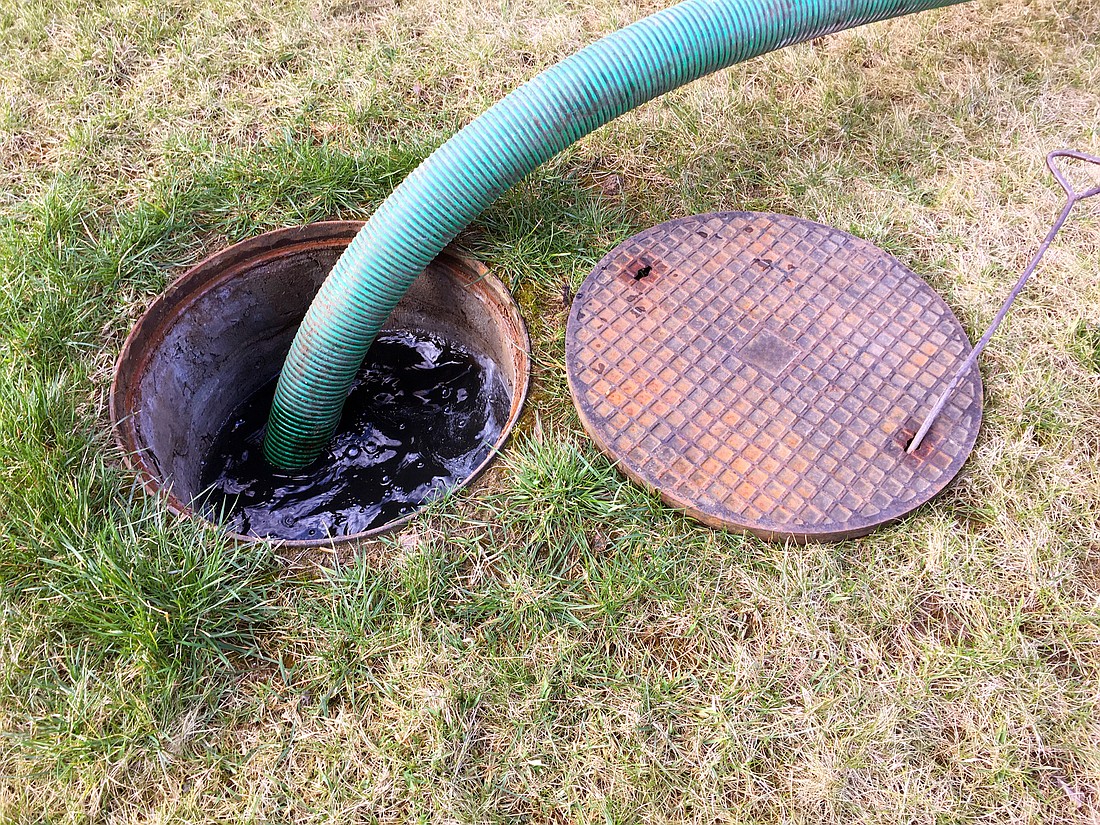
By Lisa Nommensen | JBA Young Lawyers Section
If you are shopping for a house, make sure you have an up-to-date property line survey and you understand the ins and outs of septic tanks.
A recent homebuyer in Empire Point had to learn the hard way the difficulty and costs of replacing the septic tank in her yard.
In Florida, septic tanks are not regulated by the usual permit process through the municipal building department and one must know to request documentation for the septic tank installed on their property from the local county health department.
When presenting an offer on a house, the buyer would typically foot the bill for the home inspection. In addition, a home inspector is not likely knowledgeable about septic tanks and if your potential new home has a septic tank, you want to hire a special septic inspection.
Why? Because the cost of replacing a failed or cracked septic system can be around $10,000.
Imagine this: The night before you close on your new house, your almost new neighbor tells you the septic tank has never been maintained and they never saw anyone pump it out.
You thought your house was on city sewage and there was no way you have a septic tank. The real estate listing stated the property was on city sewage, but it turns out you are on a septic tank.
The next morning, a company comes out and confirms your septic tank is completely rotten and cracked.
First, thank your almost new neighbor. Second, call your real estate agent and continue negotiations on how to get this major defect paid for before you close on the sale.
The issue in Florida regarding septic tanks compared with other states that have more regulation is that a seller is not required to clean out their septic tank nor are they required to provide a current inspection.
In Massachusetts, sellers are required to clean them out and they also are required to have the tank inspected. If the inspection fails, the sellers have to remedy it before putting the house on the market.
In addition, after you buy your house and you realize later you need to replace the septic tank, where would you look to see if it has been inspected or even when it was last serviced?
In Florida, septic tank inspections are voluntary. If your system is found to be substandard, the health department does not receive a copy of the report nor is any enforcement action taken.
This lack of oversight allows sellers to brush under the rug their failed inspection and no record or paper trail exists for a buyer to review.
In a state surrounded by water and the threat of cracked, failed septic tanks leaking into the surrounding waters, why aren’t septic tanks regulated in Florida?
With the cost to a new homebuyer well into five figures, it seems that regulations like those in Massachusetts would be the bare minimum to prevent real estate nightmares for potential buyers and provide a way to avoid environmental mishaps.
Lisa Nommensen is a litigation attorney with Nooney, Roberts, Hewett & Nowicki focusing on personal injury litigation.